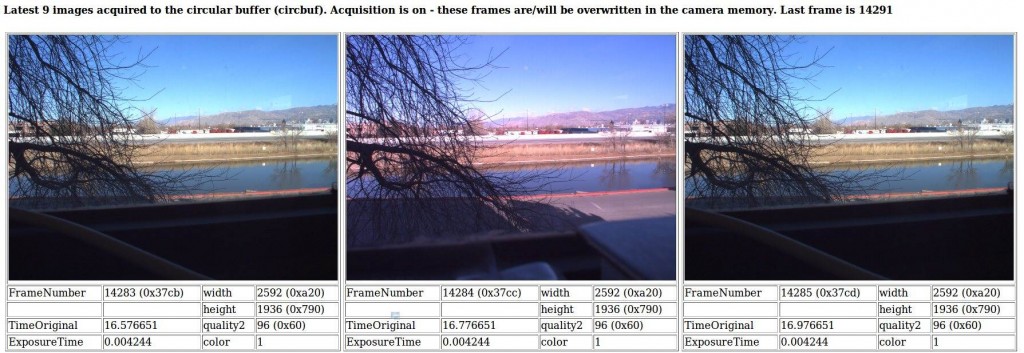10359 Stereo: Combining modes
Rewrote some blocks of the code for the 10359’s fpga and at last found out what was the problem in the alternation mode with buffering – it was the delay between the frames that were sent to the 10353 – it was too small. I used a counter earlier for that but it had 16 bits and that wasn’t enough. I extended it to 32 bits and succeeded with the delay about 220 clk tacts (220x~10ns = ~ 10ms – this is a bit much but I’m not sure – probably missing something in frame generation).
Andreas has recently advised to add a mode where the alternating frames are combined into one to make it easier to say which frame belongs to which sensor. I coded the first version with simple buffering but didn’t test much. Some notes:
- 2 frames are combined vertically.
- the initial (resulting frame) resolution is set from the camera interface (camvc).
- the sensors are programmed to half vertical size and the camvc doesn’t know about it.
I also updated the 10359 interface to switch between these modes and to change other settings.
It is worth mentioning that after ‘automatic phases adjustment’ from 10359’s interface sensors have different color gains in their registers. So, there’s a need to reprogram this parameters after phase adjustments.
What we’ve got now working in the 10359 is:
1. Alternation mode with (or without) buffering in 10359’s DDR SDRAM:

2. Alternation mode with combined buffered frames:

TODO:
1. Make sensors programmed identically after phase adjusment.
2. Add stereo module
Corrected ‘automatic phases adjustment’ and updated CVS – now sensors will be initialized identically.
Your sample image seems to place the right eye buffer on top.
That’s great! Please keep this mode, because this image can be used for on-set stereo-previewing with a 4:3 LCD and the $10 over/under prism viewer from KMQ (berezin.com in the US)